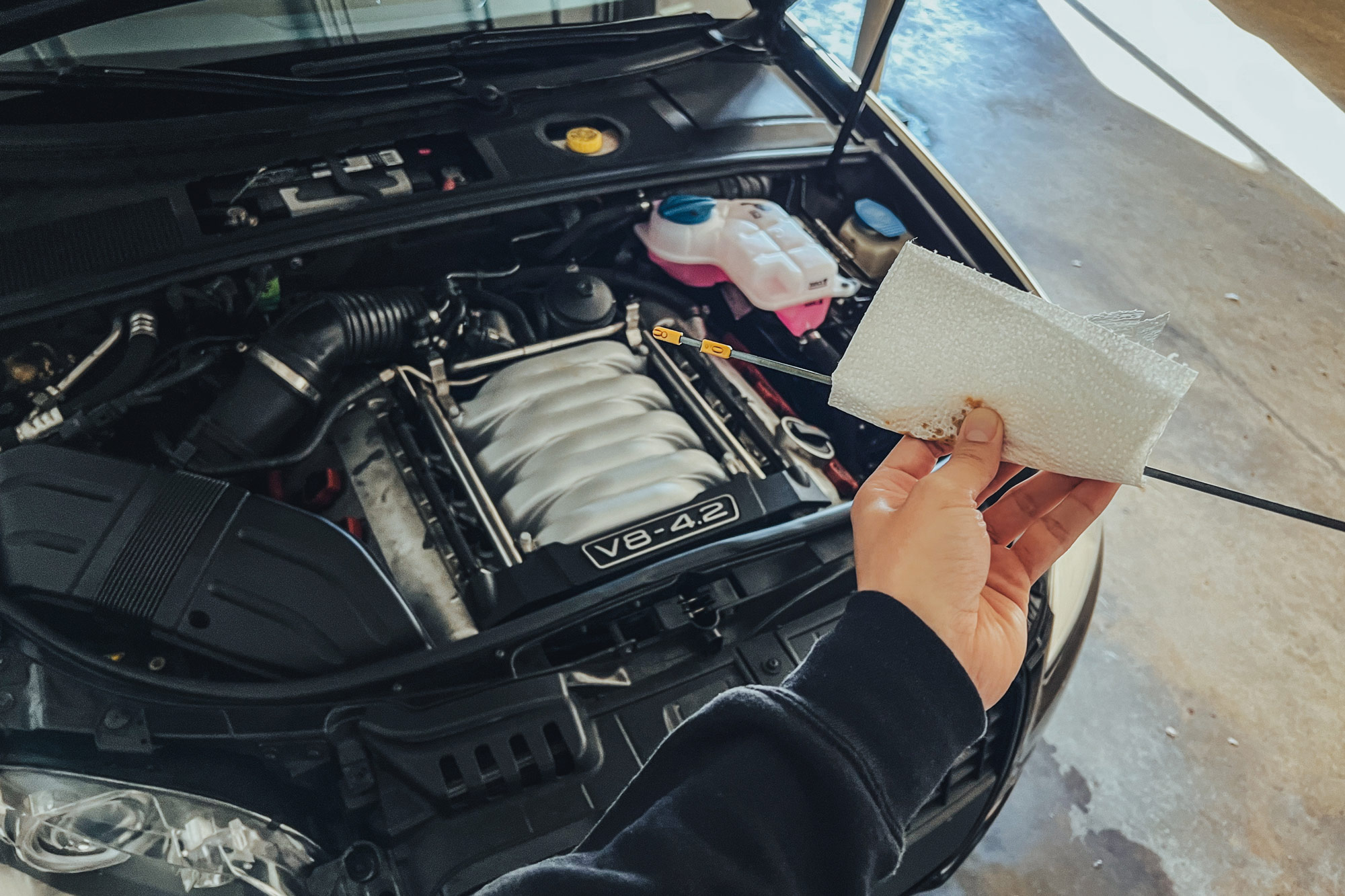Why Is My Car Burning Oil?
If you notice that your car is burning oil, here's what you can do.

Modern car engines are under increasing pressure to perform at a high level when it comes to power and fuel efficiency. While some car companies indicate that a small amount of oil consumption is a normal part of operation, if the amount of oil being burned by a motor starts to exceed the manufacturer's recommendations, it's important to get your vehicle evaluated by a professional mechanic.
Why Does a Car Burn Oil?
Oil is a lubricant vital to protecting the mechanical parts inside your vehicle's engine from damage from friction. When large amounts of oil start to burn as part of the combustion process, it indicates an internal problem that must be addressed to maintain performance and prevent more serious problems from developing down the road.
One common reason an engine starts to burn oil is worn piston rings. These rings form a seal between the piston and cylinder wall that is designed to prevent fuel from escaping while keeping oil from entering. Once that seal is broken, oil leaks into the cylinder and is burned alongside fuel and oxygen.
Other common causes of oil being burned by an engine include bad valve guides or seals, a problem with the positive crankcase ventilation (PCV) valve, or even using the wrong type of motor oil — typically with an improper weight.
How to Confirm Your Car Is Burning Oil
For many mechanics, there are two clues that your engine is burning oil. The first is blue smoke coming from the vehicle's tailpipe while the engine is running. If your car's oil level seems to be dropping each time you check it, yet the mechanic can't find any leaks or drips from the motor itself, it is another indication that oil is being burned.
Several procedures can confirm suspicions that your motor is burning oil. An oil consumption test, which involves topping up your oil, driving for a specific interval, and then verifying the oil level at the end of that period, is a common method. You can also have a mechanic perform a compression test on each cylinder.
Low compression can indicate that its valve seals or piston rings are not operating up to spec, leading to oil leaking into the cylinder. Sending your oil for analysis can also reveal whether your engine displays excessive wear, which could account for excessive oil consumption.
How to Stop Your Car From Burning oil
If you're lucky, your vehicle is burning oil because it's simply not filled with the correct type of lubricant. Swapping over to the right oil weight is the least expensive way to deal with this type of problem. A clogged PCV valve can also be a relatively inexpensive replacement.
Excessive oil consumption due to worn valve seals or piston rings is a considerably more costly and time-consuming scenario. In each case, these failed components will have to be replaced — and both of those are found inside the engine itself, where replacement means the engine must be partially or completely disassembled. Piston ring replacement can easily cost a few thousand dollars, while valve seal replacement costs vary considerably due to the differing amounts of labor involved in removing an engine's cylinder head.
Written by humans.
Edited by humans.
 Benjamin Hunting
Benjamin HuntingBenjamin Hunting is a writer and podcast host who contributes to a number of newspapers, automotive magazines, and online publications. More than a decade into his career, he enjoys keeping the shiny side up during track days and always has one too many classic vehicle projects partially disassembled in his garage at any given time. Remember, if it's not leaking, it's probably empty.
Related articles
View more related articles